Why police are worried about increase in ‘paedophile hunters’
Vigilantes who target child abusers often ‘commit offences themselves’

A free daily email with the biggest news stories of the day – and the best features from TheWeek.com
You are now subscribed
Your newsletter sign-up was successful
UK police have voiced major concerns about the activities of so-called paedophile hunters who attempt to entrap potential child sex offenders without the help of authorities.
According to the BBC, such vigiliante groups often contain members who set up fake profiles on social media, purportedly belonging to teenagers, and wait for adults to contact them.
The broadcaster says that once contact has been made they will then “confront the suspect, usually filming the operation, before handing their evidence to the police”.
The Week
Escape your echo chamber. Get the facts behind the news, plus analysis from multiple perspectives.

Sign up for The Week's Free Newsletters
From our morning news briefing to a weekly Good News Newsletter, get the best of The Week delivered directly to your inbox.
From our morning news briefing to a weekly Good News Newsletter, get the best of The Week delivered directly to your inbox.
This week Dan Vajzovic, of the National Police Chiefs' Council, warned against this form of activism. He claimed hunters “often divert police resources away from other offenders and often commit offences themselves during their operations”, including “extortion, blackmail and exhibiting violence against those that they are targeting”.
According to ITV News, some police “fear that the groups’ actions could interfere with surveillance operations, while the evidence they gather may not be of a high enough standard to use for prosecution” anyway.
Former police chief Jim Gamble told the Independent Inquiry into Child Sexual Abuse in early 2018 that “masquerading as a child online should become a criminal offence to deter vigilante stings”.
He also told The Telegraph this summer that such groups “attract people with domestic abuse records and coercive control. They give people the opportunity to reinvent themselves as a good person and create this status, to build a Facebook or a Twitter following.”
A free daily email with the biggest news stories of the day – and the best features from TheWeek.com
The National Society for the Prevention of Cruelty to Children (NSPCC) said that while it had “sympathy” for those who target suspected abusers, protecting children was its “ultimate priority”.
“If someone has concerns about child safety the best way they can help is to alert the police,” the society warned.
But Paddy Tipping, the police and crime commissioner for Nottinghamshire, said in April last year that police in his area should try to form “better relationships” with vigilante groups.
A recent freedom of information request filed by the BBC has shown that last year prosecutors used evidence by so-called paedophile hunters in more than 250 cases against suspected abusers.
-
 Switzerland could vote to cap its population
Switzerland could vote to cap its populationUnder the Radar Swiss People’s Party proposes referendum on radical anti-immigration measure to limit residents to 10 million
-
 Political cartoons for February 15
Political cartoons for February 15Cartoons Sunday's political cartoons include political ventriloquism, Europe in the middle, and more
-
 The broken water companies failing England and Wales
The broken water companies failing England and WalesExplainer With rising bills, deteriorating river health and a lack of investment, regulators face an uphill battle to stabilise the industry
-
 School disputes: a police matter?
School disputes: a police matter?Talking Point Cowley Hill lodged a police complaint against parents who criticised its recruiting process for a new head
-
 The UK 'spy cops' scandal, explained
The UK 'spy cops' scandal, explainedThe Explainer Undercover police targeting activist groups conducted intrusive surveillance, with some even embarking on relationships under assumed identities
-
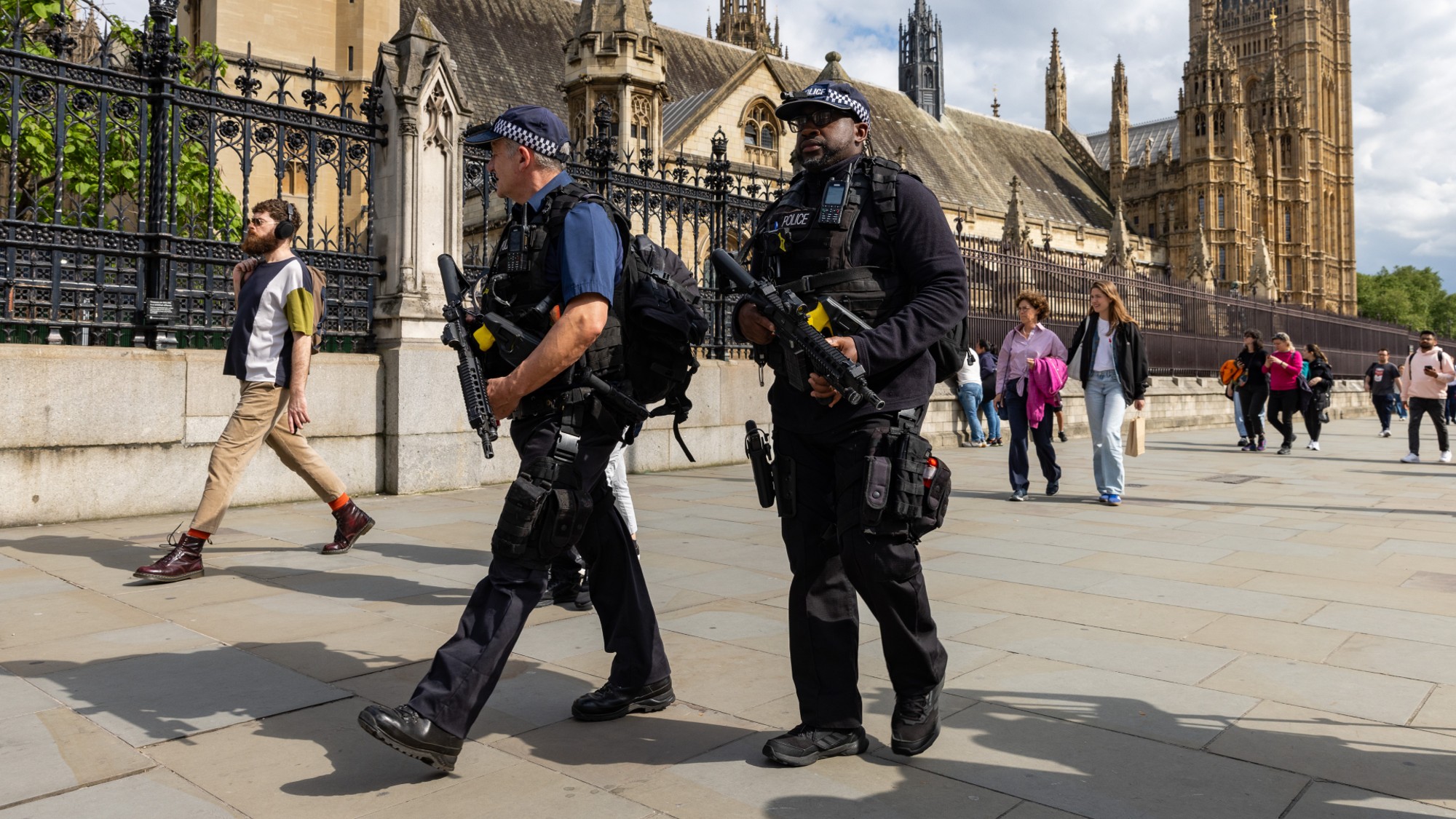 The rules for armed police in the UK
The rules for armed police in the UKThe Explainer What the law says about when police officers can open fire in Britain
-
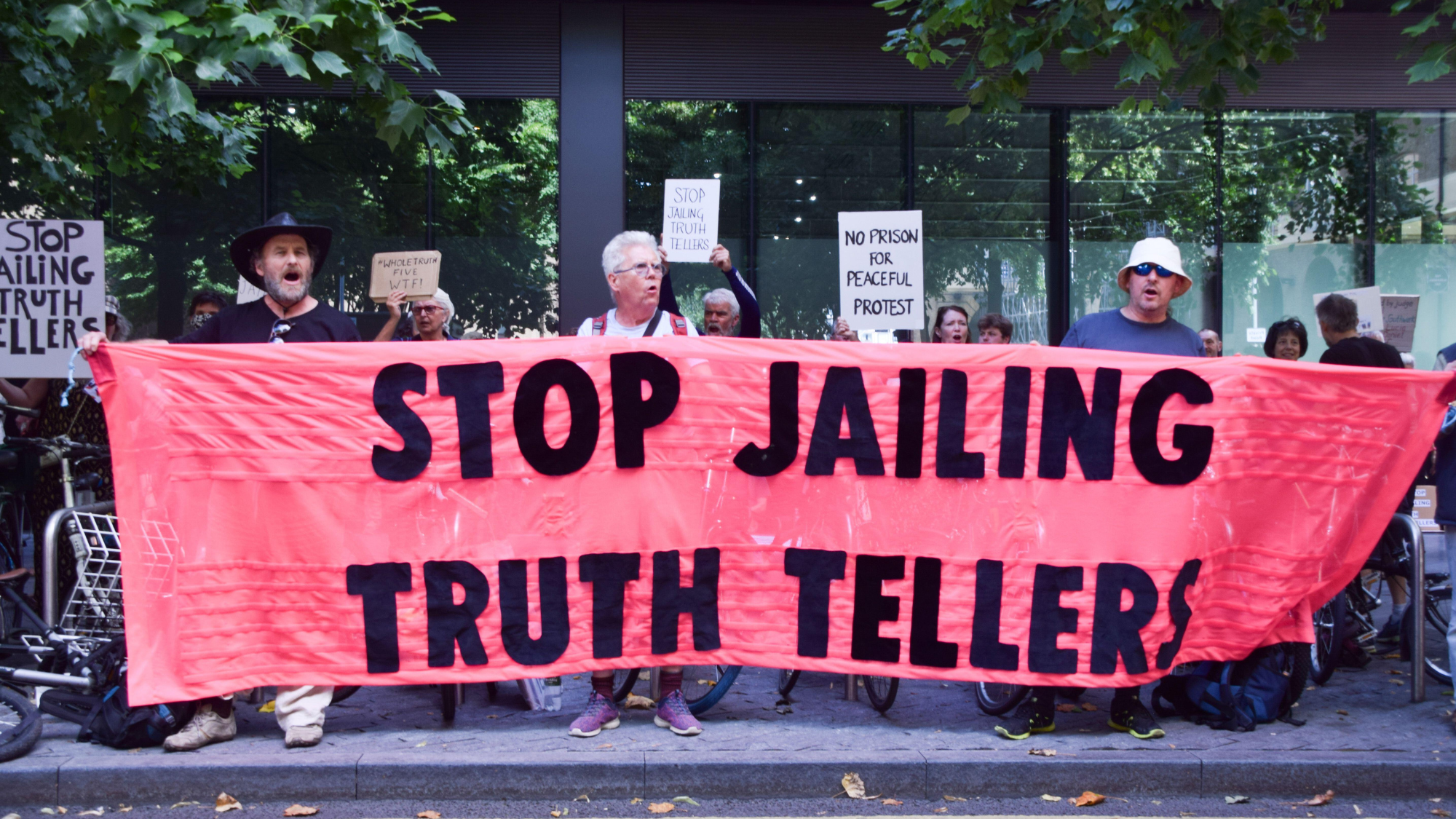 The Just Stop Oil five: 'fanatics' or victims of anti-protest authoritarianism?
The Just Stop Oil five: 'fanatics' or victims of anti-protest authoritarianism?In the Spotlight Climate protesters handed longest-ever prison sentences for peaceful protest
-
 Anti-racism policing unit is accused of racism
Anti-racism policing unit is accused of racismSpeed Read Police Race Action Plan criticised for treating minority staff members as ‘troublemakers or difficult’
-
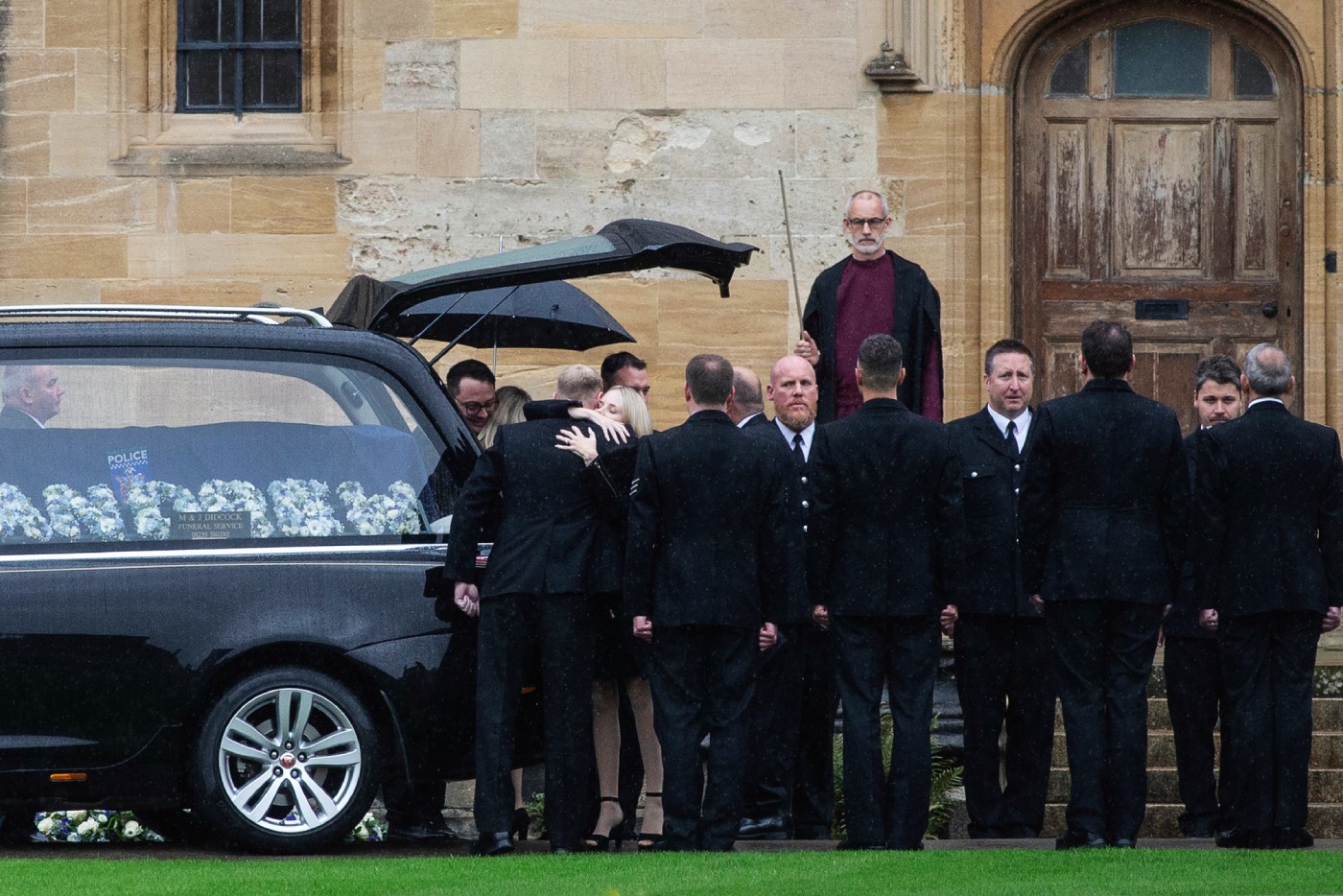 What is Harper’s Law?
What is Harper’s Law?Today's Big Question Killing emergency workers to carry life sentence following campaign by police officer’s widow
-
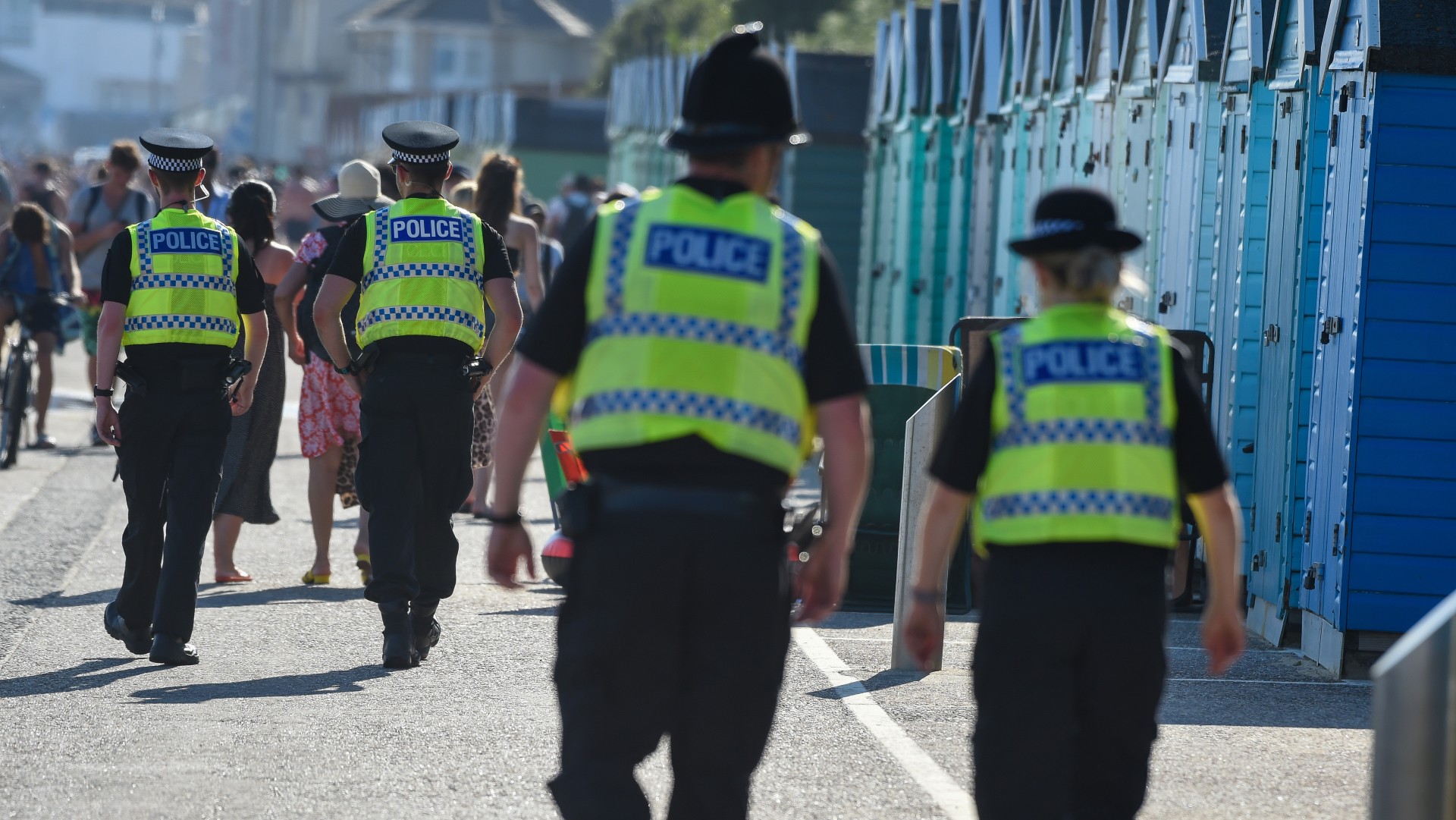 Police struggled to ‘keep up’ with confusing Covid laws
Police struggled to ‘keep up’ with confusing Covid lawsUnder the Radar Watchdog warns ministers that regulations are passed in Parliament rather than ‘from a podium’
-
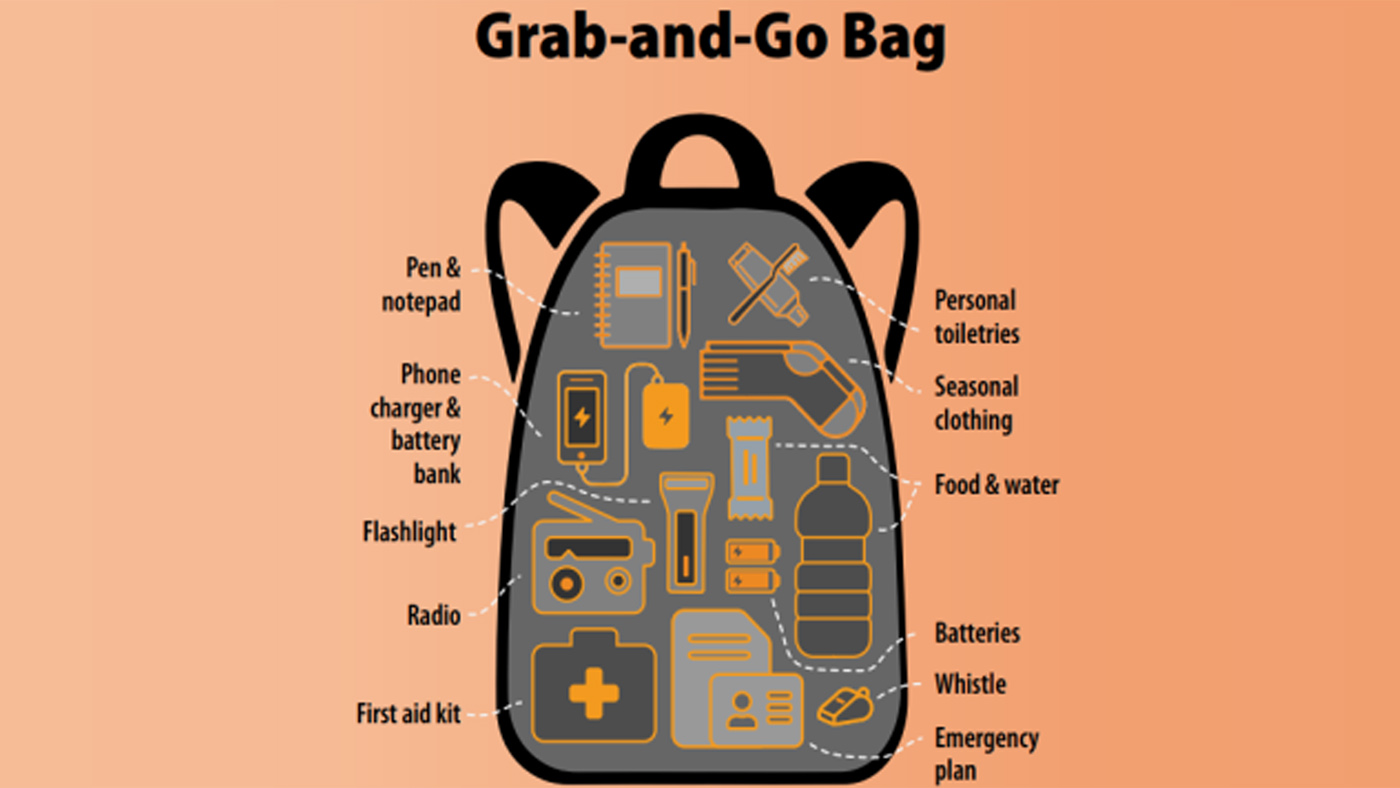 What are emergency ‘grab bags’?
What are emergency ‘grab bags’?Speed Read Police campaign has been mocked and described as ‘scaremongering’